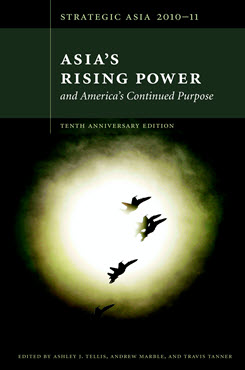Asia and the World Economy in 2030
Growth, Integration, and Governance
The chapter examines Asia’s likely economic expansion through 2030 and explores the consequences for U.S. policy.
EXECUTIVE SUMMARY
The chapter examines Asia’s likely economic expansion through 2030 and explores the consequences for U.S. policy.
MAIN ARGUMENT
Between 1990 and 2030, Asia and the West (defined as the U.S. and Europe) will have roughly traded places in terms of output and other measures of economic mass. Asia’s rise will require adjustments around the world but should have a conservative influence on the world system. Given the region’s stake in global interdependence and pragmatic focus on development, Asia should help to sustain existing institutions, while also resisting new, more restrictive agreements. Commercial, institutional, and people-to-people contacts will expand and mitigate tensions.
POLICY IMPLICATIONS
- The U.S. can prepare for this transition by investing in technology, education, and exports, and by putting its finances on a sound footing. With complementary reforms in Asia, these initiatives should help to reorient U.S. production and employment toward rapidly growing Asian markets.
- Deepening trans-Pacific linkages should become Washington’s highest international economic policy priority. Asian regional integration is a natural by-product of Asia’s rise, and trans-Pacific partnerships can help to keep Asian cooperation outward-looking rather than turning discriminatory.
- As the established power that will benefit most from Asia’s integration into the global economy, the U.S. is well positioned to lead the search for global institutions that deliver effective cooperation and reflect Asia’s rise.
- Asia-U.S. relations will face major opportunities in 2011 as a legislative window opens in the U.S. for passing the Korea-U.S. Free Trade Agreement and making progress on the Trans-Pacific Partnership. As the host of APEC in 2011, the U.S. also has an excellent platform for promoting the benefits of trans-Pacific ties to both sides.
Strategic Asia
The Strategic Asia annual edited volume incorporates assessments of economic, political, and military trends and focuses on the strategies that drive policy in the region. Learn more about Strategic Asia.


